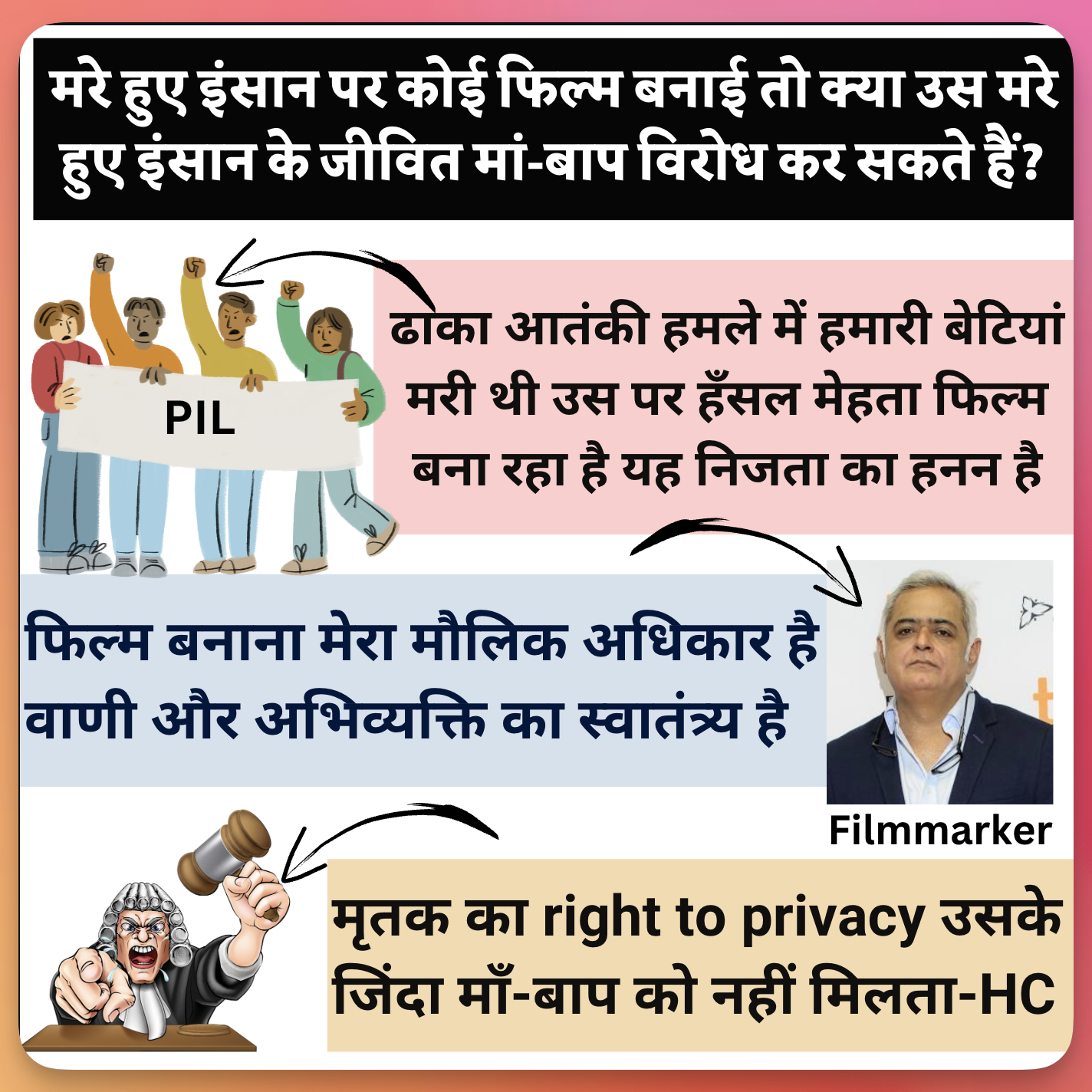Short story
- 2016 terrorist attack in Dhaka,Bangladesh killed 2 young girls
- Their mothers raised concerns about an upcoming film “Faraaz”
- Claimed that the film’s production constitutes a breach of their right to privacy under Article 21 of the Constitution
- Mothers argued that their “right to be left alone” takes precedence over the filmmakers’ right to commercially exploit the incident
- Delhi High Court asked both parties to consider resolving their issues
- Court noted that “the right to privacy is essentially a right in persona and is not inheritable by the mothers/legal heirs of the deceased persons.”

Long story
The 2016 terrorist attack in Dhaka, Bangladesh, left many families grieving the loss of their loved ones. Among those affected by the tragedy were the mothers of two young girls who were killed in the attack. Recently, these mothers have raised concerns about an upcoming film by director Hansal Mehta, called “Faraaz,” which they believe may depict their daughters in a negative light.
The mothers have claimed that the film’s production constitutes a breach of their right to privacy, which is protected under Article 21 of the Constitution. They argue that their “right to be left alone” takes precedence over the filmmakers’ right to commercially exploit the incident.
The Delhi High Court has recently weighed in on the matter, and has asked both parties – the filmmakers and the mothers – to consider resolving their issues. However, the court noted that “the right to privacy is essentially a right in persona and is not inheritable by the mothers/legal heirs of the deceased persons.”
This case raises important questions about the balance between the right to privacy and the right to freedom of expression. It also highlights the sensitive nature of depicting real-life events in the media, especially when those events involve the tragic loss of human life.

![♿️ [Polity/Rights issues] Colour-coded card system for PHYSICALLY HANDICAPPED (PH) certificate](https://mrunal.org/wp-content/uploads/2024/11/WP_PH_CARD_TYPES-500x383.jpeg)
![[Polity] imp latin judicial terms for UPSC MCQs – Audi alteram partem, CORAM NON JUDICE etc](https://mrunal.org/wp-content/uploads/2024/06/Polity-Judicial_terms-500x383.jpeg)
![[Polity] SC Subcategorisation – Madiga vs Mala in Telangana; Demand by Karnataka State Govt](https://mrunal.org/wp-content/uploads/2024/01/Polity_PM_Modi_madiga_SC_Subcat-500x383.jpg)
![[Polity] Separation of Powers: Govt Rejects GAY candidate from judge position, SC-Collegium discloses the bias in public](https://mrunal.org/wp-content/uploads/2023/01/gay-500x383.png)
Leave a Reply